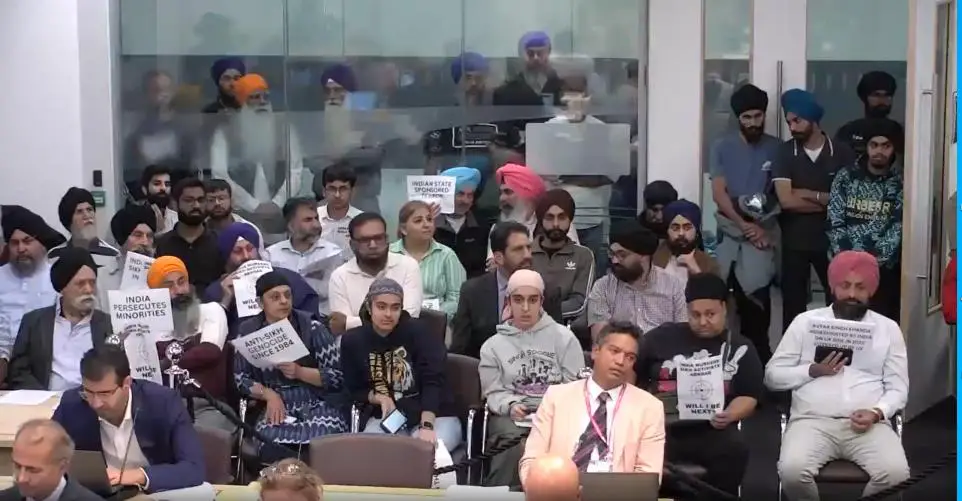Discover how the relocation of homeless families to Slough exposes systemic housing issues and calls for regional cooperation and innovative solutions.
In a heated session that underscored the intense emotions surrounding the issue, Slough Borough Council faced fierce criticism and accusations from various quarters for their decision to block a debate on Khalistan. The council’s move, which many viewed as a silencing of critical voices, has sparked outrage among Sikh activists and the broader community, raising serious concerns about freedom of expression and the safety of those advocating for the Khalistani cause.
Accusations Flew Across the Chamber

During the emotionally charged council meeting, tempers flared and voices were raised as councillors opposed a motion to discuss alleged threats to Sikh activists campaigning for Khalistan—an independent state for Sikhs. One particularly pointed accusation came from a member of the public who declared, "If they are murdered it is your fault," directly holding the councillors responsible for any potential violence against activists due to the council's inaction.
This incendiary claim underscores the depth of fear and concern within the Sikh community, which feels increasingly vulnerable amidst growing tensions over the Khalistan issue. Activists argue that by blocking the debate, the council is not only ignoring their legitimate concerns but also indirectly endorsing the hostile environment that puts their lives at risk.
Council's Justification Met With Skepticism
The council attempted to justify their decision by stating that the debate fell outside their jurisdiction and could potentially incite unrest. However, these explanations have been met with widespread skepticism and disappointment. Many believe that discussing the threats against activists is integral to addressing broader issues of community safety and cohesion, regardless of where political allegiances lie.
Local councillor Jane Doe stated, "We understand the council’s stance on maintaining order, but it’s essential that we don't turn our backs on members of our community who feel endangered. We must find ways to address their concerns without fostering division."
Community Leaders Express Discontent
Community leaders and human rights activists have stepped up to voice their discontent over the council’s handling of the situation. Prominent Sikh leader, Harjit Singh, emphasised the need for dialogue and protection for activists. "Silencing the debate doesn't make the problem go away," Singh argued. "On the contrary, it exacerbates the sense of alienation and fear felt by those who dare to speak out. Our safety and our right to express our views must be safeguarded."
Other leaders echoed these sentiments, urging the council to reconsider its stance and engage in meaningful discussions to ensure the safety and well-being of all residents.
The Broader Implications
The controversy in Slough is reflective of a larger, global conversation about freedom of speech and the right to political dissent. As movements like Khalistan continue to generate passionate support and equally strong opposition, the responsibility falls on local governments to navigate these complex dynamics thoughtfully and fairly.
What happens next in Slough remains to be seen. However, one thing is clear: the council's decision has ignited a firestorm of debate and placed the spotlight squarely on how democratic institutions balance the need for order with the imperative to protect civil liberties.
In the end, the true measure of any community lies in its ability to listen to and address the fears and aspirations of its members. Slough Borough Council now faces a defining moment in its history—whether it will stand firm on its decision or rise to the challenge of fostering an inclusive space where even the most contentious issues can be discussed openly and safely.